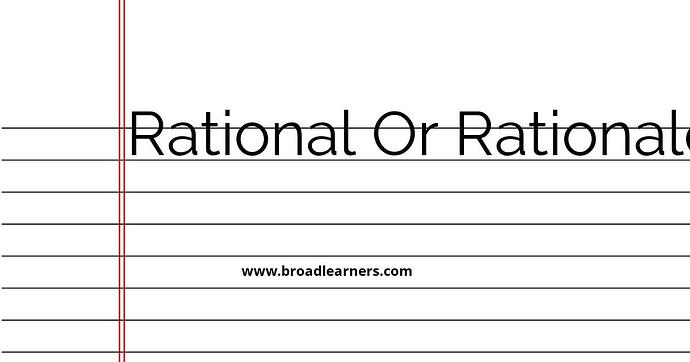'Rational' and 'rationale' are commonly confused words in English grammar. Understanding the difference between 'rational' and 'rationale' is important to use them correctly in written and spoken English.
'Rational' is an adjective that means based on reason or logical thinking. It is used to describe something that is sensible, logical, or reasonable.
'Rationale' is a noun that refers to the underlying reason or justification for something. It is used to explain or provide a logical basis for a decision, action, or belief.
Let's take a closer look at the meanings and usage of 'rational' and 'rationale'.
| 'Rational' | 'Rationale' |
|---|---|
| The word 'rational' is an adjective that describes something based on reason or logical thinking. | The word 'rationale' is a noun that refers to the underlying reason or justification for something. |
|
|
To remember the difference between 'rational' and 'rationale', it can be helpful to remember that 'rational' is an adjective that describes something based on reason or logic, while 'rationale' is a noun that refers to the underlying reason or justification for something.
Here are some examples of correct usage:
- She made a rational decision based on the available information.
- The company's rationale for the new product line was to target a younger demographic.
- It is important to approach problems in a rational and logical manner.
- The rationale behind the new policy was to promote sustainability.
Remembering the correct usage of 'rational' and 'rationale' will improve your grammar and communication skills.
